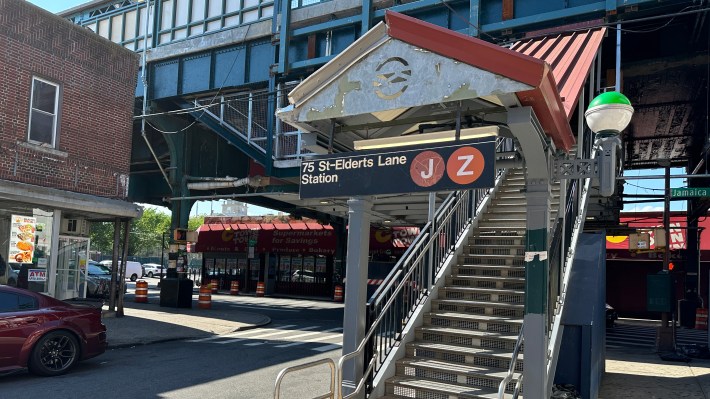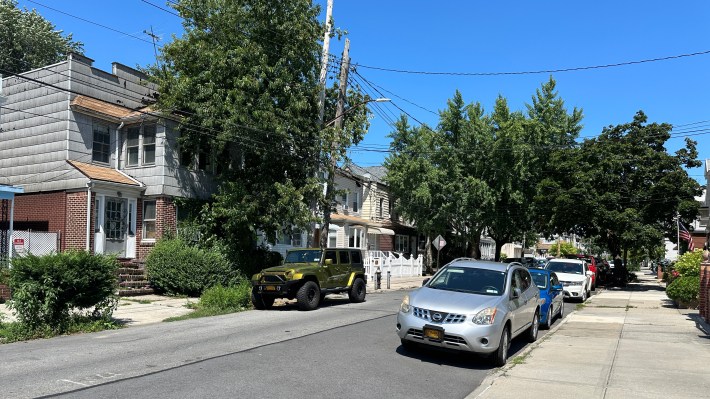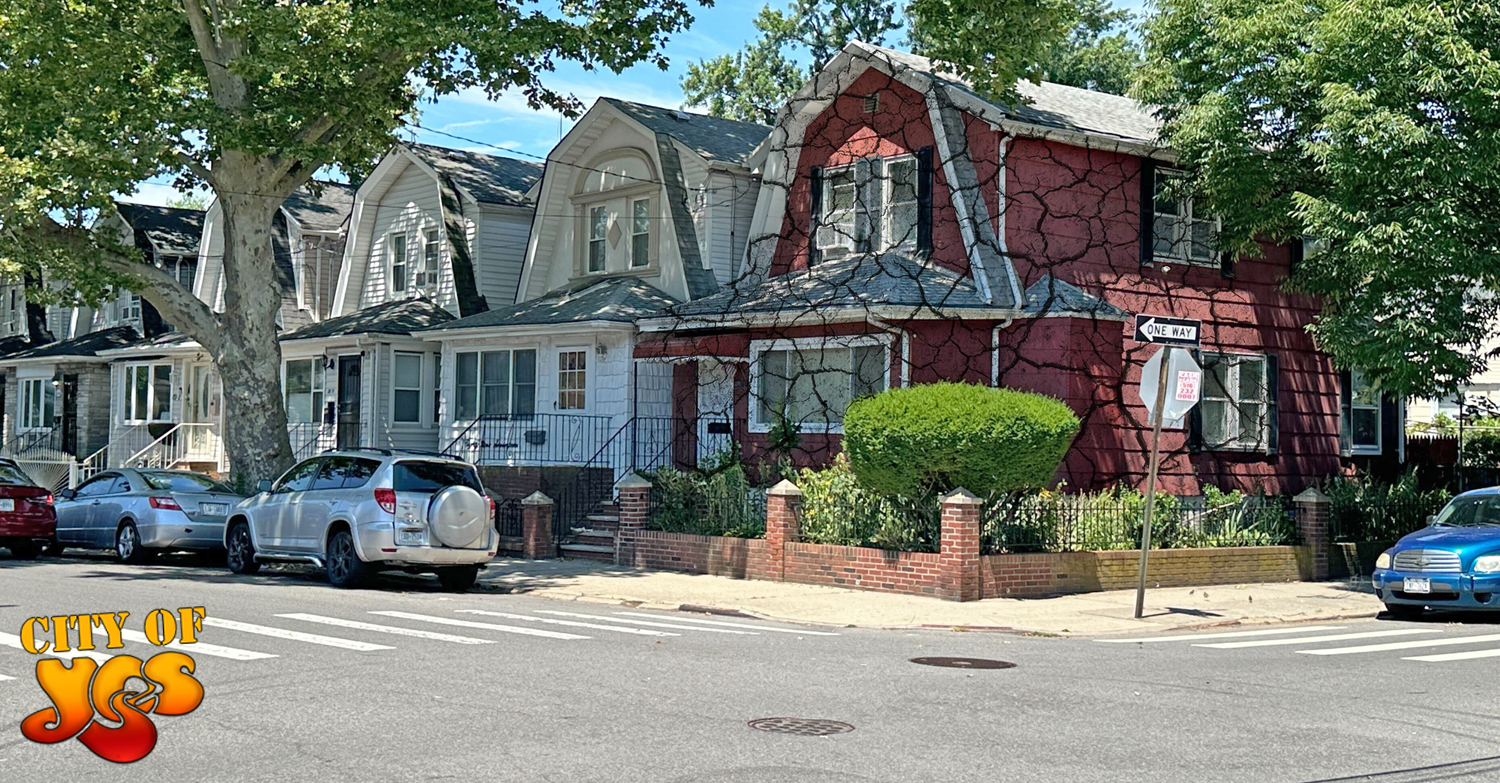The city’s lowest density community districts — where very little housing has been built despite a citywide crisis — are opposing the mayor’s citywide rezoning proposal that seeks to build "a little more housing in every neighborhood."
Community boards in the city's densest neighborhoods are generally recommending that the City Council pass Mayor Adams's "City of Yes" housing initiative, which hopes to spur development by allowing for greater density around transit and by lifting parking mandates, according to a Streetsblog review of the votes from 57 of the 59 community boards that have weighed in.
After around two months of presentations and tense deliberations, the boards made a recommendation of either “favorable” or “unfavorable,” though some did so with "conditions." Overall, 38 boards offered a "No" on City of Yes, while 20 boards were favorable (with or without conditions) — and the majority of favorable recommendations came from higher-density areas.
Only two of 14 Queens boards voting in favor, for example: CB1 and CB2 in western Queens, which comprise the higher-density neighborhoods of Long Island City and Astoria, respectively.
Despite the opposition, the leader of the City Planning Commission said he is encouraged that many New Yorkers, especially those in higher-density neighborhoods, understand the dire housing shortage the city is facing. And, again despite the opposition, City of Yes is doing better than prior rezonings, such as the Zoning For Quality and Affordability in 2016, which received significantly less community board support at the time.
“We take public input seriously and will be reviewing the feedback we’ve received as we consider potential modifications to craft the most complete and thoughtful policy,” Commission Chair Dan Garodnick told Streetsblog. “We’re encouraged by the reception we have gotten from New Yorkers to date.”
The purpose of City of Yes is to add “a little more housing” to every neighborhood, and to alleviate pressure on communities who had the most development in recent years. The low-density areas of all five boroughs stood out in opposition to the plan, because the plan is directly asking them to come to the table.
“There have been too many communities throughout the city of New York that have decided that they're not going to build any housing,” Brooklyn Borough President Antonio Reynoso told Streetsblog. “In doing so, they really ramp up the pressure in mostly poor neighborhoods.”
So what have we learned?
Community boards are a narrow representation of the population of a given district, and they tend to skew white, older, and homeowner. A City Charter change included term limits and diversity initiatives for the city’s boards, but there is still a long way to go.
The voting patterns are a macro version of the testimony at an epic, 15-hour hearing on "City of Yes" at the City Planning Commission earlier this month, where some opponents from low-density neighborhoods made it clear that they didn’t understand the plan completely.
Queens resident Arlene Schlesinger of the Hollis Hills Civic Association testified against City of Yes, specifically saying she opposed a new regulation to encourage the construction of so-called Accessory Dwelling Units, such as new units over detached garages or in backyards.
But she did in a way that raised eyebrows.
“Living costs are high [so] many families here have to live with parents or grandparents to manage these expenses," she testified.
“You mentioned living with parents or grandparents — are you opposed to the Accessory Dwelling Unit component of the City of Yes proposal?” asked Commissioner Joseph Douek.
“No, it should not be something that is considered in certain areas. If somebody wants it, that’s up to them,” replied Shlesinger.
“But that is the proposal,” said Douek. "It’s not mandatory. It's up to the homeowner."
That's when Schlesinger inadvertently supported the plan: “If a homeowner in Hollis Hills decided that they wanted an ADU, that is their decision."

Mostly, Schlesinger and others like her stuck to the low-density talking points: she opposed getting rid of a requirement that developers build off-street parking, and she argued that her single family home would be under threat by new residents “creating chaos.”
Neighboring Council Member Joann Ariola (R-Woodhaven) boasted that she did not “agree” with the fact that her district built only 129 new units of affordable housing in the last 10 years. She said that residents of the "suburbs" — which is how she described her sprawling district, which is very much in the city — don't want more housing.
Boosters say that City of Yes elements such as Accessory Dwelling Units, Transit Oriented Development and Town Center Zoning simply give people in the city looking for a place to live more options. And in Queens CB9, residents who were too busy working to attend the hearing said that the burden of high rent and a tight housing market kept them living with family or roommates longer than they wanted to.
“The rent is obviously very high,” said S.K., an adult who lives with his parents, but declined to give his name. “I would like to move out and live by myself, but I work seven days a week at a minimum-wage job, and I know there is no way that the money that I make will earn me my own living space.”

Another resident who is fortunate enough to rent an apartment she can afford was thinking about those who can't.
“I worry about everyone of all ages trying to find affordable housing in the community, to be honest,” said Marissa Collado, 32. “I think [building housing] close to public transportation is important.”
Ibrahim Hersi contributed reporting.
Update: After initial publication of this story, Arlene Schlesinger sent over the following statement to clarify what happened at the hearing:
I am a resident of Hollis Hills. I am also an officer of the Hollis Hills Civic Association; however, I do not speak for our organization, only for myself.
Let me state for the record again: The reason I gave testimony on the City of Yes for Housing Opportunity is because of my complete opposition to it. I am not a public speaker, nor do I regularly give public testimony of any kind. However, I was extremely nervous at the hearing. I left out six critical words at the end of my sentence, "If somebody wants it, that’s up to them. These words: "ONLY IF CITY OF YES GETS APPROVED," which I absolutely do not want!
Let me make it clear again to the City Planning Commission and any publications that are using my previous public comments to push an unmitigated pro-development at any cost agenda: I do not support the City of Yes for Housing Opportunity in any way, shape or form and agree with the oral and written testimony presented by Carin Bail, the president of the Hollis Hills Civic Association, 100 percent.
Arlene Schlesinger






